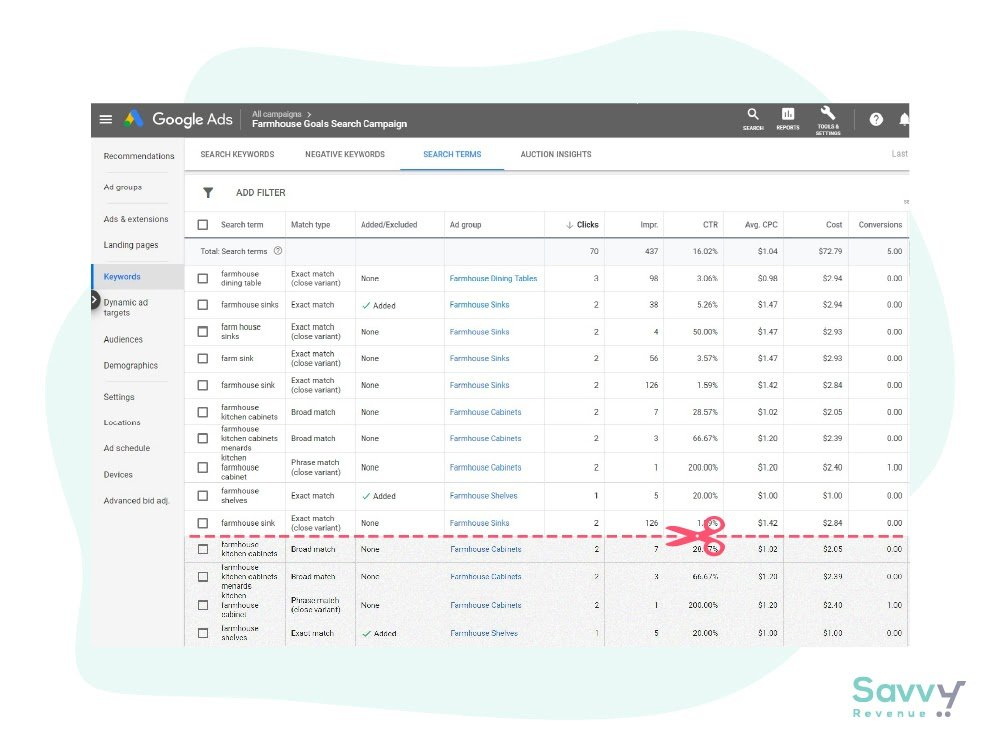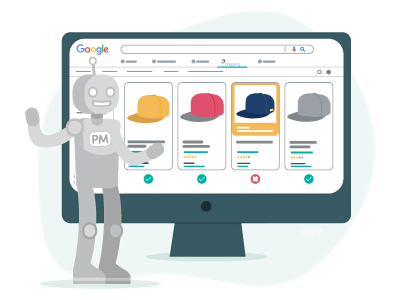I’ll start with a rant, and a proclamation:
It’s a completely reckless move by Google.
It spits in the face of any advertiser out there and is a clear ‘F YOU’ to everyone.
I fear that this is a play to reduce your ability to exclude your ads from showing up on low-value ad inventory.
We see the same with Smart Shopping.
We stand by anyone in the community who thinks this is horrible.
This post is one part rant, one part insight, and one part what you should do now.
But first, why does it matter?
Want to skip the rant, and just go-to solutions?
Does it really matter?
I must admit that I was the first person to see the report and go: ‘Meh, what else is new?’ We’ve seen this story before.
Remember when we couldn’t create mobile-only campaigns? We learned to live with it. And it wasn’t really that bad after a while.
And with all due respect, us PPC people are only marginally beaten by the SEO people in getting upset about minute details.
You see ‘complainer’ blog posts and tweets all the time.
We are like the boy who cried wolf.
But…
About 25% of your search term data is gone.
For established advertisers in B2C ecommerce, it doesn’t really matter.
You already have big negative keyword lists.
But…
For expanding advertisers, it’s huge.
For new advertisers, it’s huge.
For B2B with $10+ CPCs, it’s huge.
Colin Slattery of Taikun Digital made a good example of one of his accounts:
- CPA for known search terms: $3.56
- CPA for unknown search terms: $57.23
If that’s not significant, I don’t know what is.
But as with everything, I did a similar analysis of a couple of accounts in SavvyRevenue seeing we primarily run B2C eCommerce accounts with large volume.
We did not find the same examples.
To share some examples:
- 0.45% conversion rate for unknown search terms
- 0.30% conversion rate for known search terms
Another example:
- 1.63 ROAS for unknown search terms
- 1.62 ROAS for known search terms
Another example:
Equivalent performance for known and unknown terms.
However, these three accounts were all well-established accounts.
I did check the one brand new account we are involved with that launched campaigns on September 2nd:
39% unknown terms.
0.79 ROAS for known terms vs 0.19 ROAS for unknown terms.
Granted it was right when the account launched.
In the last 7 days, the numbers are slightly different:
45% unknown terms.
3.42 ROAS for known terms vs 2.15 ROAS for unknown terms.
It will be really interesting to follow this trend. You can’t optimize what you can’t see.
But…
This doesn’t have to be definitive in any direction. In large accounts, you’ll always be able to analyze your way to a big waste. You have a lot of one search – one-click search terms that you wouldn’t exclude anyway.
But, for some accounts, this can be the difference between success and no success – especially with the introduction of close variants.
And if you don’t think close variants are a big deal, then I don’t think you work in the UK, US, or other English-speaking markets.
Close variants are awful in English. We run accounts in English, Spanish, Danish, Swedish, Finnish, German, Norwegian, Italian, French, and Dutch.
Only in English do we see a significant volume of close variant matches. I simply don’t think that Google’s algorithm can figure it out yet in other languages.
BTW. This is worldwide. I heard a rumor that some large agencies in Europe were claiming this was GDPR-related. It’s not.
But what is Google’s play here?
It claims that the search terms we can’t see are insignificant clicks.
In my not so humble opinion:
25% is not insignificant.
Google is definitely trying to simplify its platform (for better and worse).
But it is also trying to increase revenue.
I’m not the tinfoil hat type, and I have never given into the many conspiracy theories about Google. This move reeks, though. It really stinks of revenue optimization and is yet another nail in the coffin of the keyword targeting removal that is bound to come.
And I believe we’re all to blame. Smart Shopping has been a raving success with in-house teams and agencies alike.
I believe Google has seen that success as a sign the world is ready to move beyond analyzing search queries.
That, combined with Google reducing its efforts to support the agency ecosystem in some ways, can be seen as a move toward enabling advertisers to work more directly with the interface.
Start agency rant
I also know that we are an agency, and Google seems hellbent on working against agencies. So, whatever my theories are, they will be discounted by many as an ‘agency losing its place in the world’.
First, I couldn’t care less. If agencies are a thing of the past, I’ll move to start another business. (I’ve done that twice now). No. Biggie.
Second, our client type would never completely trust Google. Or they wouldn’t until Google had proven to not work in its own self-interest, which the introduction of the optimization score cemented it’s incapable of doing.
I don’t blame Google one bit though. It must be incredibly frustrating to have such a wide breadth of potential customers hating your platform because a third-party service provider hasn’t managed its advertisers correctly.
Because that’s the only reason I can see for Google wanting to forgo agencies.
Google can’t do it itself. It’s tried many times before, and it can’t take the place of an agency (from the words of high-ranking Google officials, repeated many times).
That’s not to say it can’t create an elite division that helps elite advertisers. Of course it can. It’s Google!
It just can’t scale a service offering that rivals the good agencies and that ecosystem. Anyone who has tried to scale an agency knows how difficult it is to maintain quality. We scaled White Shark Media to 200 people, and I don’t even believe we had the necessary quality in all corners of the business.
Out of 200, 100 people were PPC. (The rest were SEO, Web, Sales, Admin, HR, etc.).
So, we got to 100 PPC people in six years.
That would be a drop in the bucket for what Google would need to scale to service advertisers in the US and globally – even if it went all-in on automation with smart campaigns, Smart Shopping, etc.
And, at that point, you can argue Google isn’t really servicing advertisers if all the PPC specialists are doing is enabling smart XYZ.
‘So, Andrew, are you saying Google can’t scale to 1000x what you did in White Shark Media? You must have pretty big thoughts of yourself. Google has been the most valuable company in the world before Apple.’
That’s not what I’m saying. I admire everything about Google.
But the level of complexity that comes with servicing all advertisers in the Google ecosystem is breath-taking.
And advertisers can’t do it alone. The platform will never be so effective that you don’t have to manage/nudge it.
Which means all roads lead to Rome, or to agencies in this case.
Not everyone needs an agency. But some do, and many benefit greatly from working with agencies.
End agency rant
What can you do?
Any advertisers with Google Reps (account managers) should send them an email complaining about the lack of data.
We’ll do it as an agency, but, as I said at the start of my rant, Google doesn’t put a lot of value on agency feedback anymore. It just takes our feedback as a ‘horse being upset at the invention of the car’.
You can, and should, also sign this petition.
What should you change in your optimization routine?
At the moment, we are holding our breath and not really changing our approach.
But a couple of things have come up internally:
You should be a lot more careful using N-gram analysis (which I’m actually not a huuuge fan of anyway).
You should consider testing Smart Bidding (and letting Google win). This might be especially great for new accounts. Smart Bidding can bid on a search term level, and I trust that Google still lets its own Smart Bidding algorithm access all the data.
You should look historically before adding new negative keywords. Mark 1 September 2020 in your account. 😉
Dynamic Search Ads should be de-emphasized in accounts. This one will hurt many.
Proactive negative keywords could become important. Meaning you add negatives through sheer brainstorming or keyword research tools – not after analyzing your data.
Temporarily, it’s been reported that you can access your search terms in Google Analytics.
The only thing holding me back
‘Wait, is this post you holding back, Andrew?’
You don’t even know, my friend.
You don’t. Even. Know.
At the time of this writing, we have about three weeks’ worth of data to analyze.
It will be very interesting to review at what threshold Google withholds its data once we start looking at 180-day or 365-day intervals.
Because a search term getting one click a week for 50 weeks will be 50 clicks. Is that still insignificant?
I get that it’s insignificant when we look at two clicks after two weeks.
But 50 clicks after 50 weeks? That’s going to be interesting.
If that’s the case, then optimization patterns will definitely have to change.
I believe Google can revert it
As ending words, I genuinely believe Google can rollback this change if enough advertisers complain.
It made a mistake on the device bid adjustment saga.
There are legitimate complaints.
There are legitimate cases from the massive B2B advertising community.
I believe Google can be convinced to roll this back.
So, share the info with your rep, and, if we can’t revert it, then we will figure out the best way to cope. Just like we have with Google Shopping. Just like we have with close variants.
Our community is full of smart people.
We’ll figure it out.













